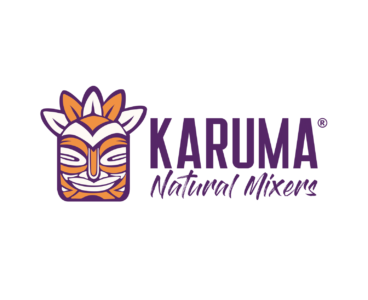Wow! So, you’re diving into the Solana ecosystem and scratching your head about how to pick the right validator, huh? I get it—at first glance, it looks like a simple math problem. Stake your tokens here, get rewards there. But seriously? It’s way more tangled than that, especially when you factor in DeFi and NFTs buzzing around.
My first gut feeling was: “Just stack with the highest APR validator and call it a day.” Sounds logical, right? But then I started poking around deeper, and something felt off about that approach. Validators aren’t just reward machines—they’re the backbone of Solana’s security and decentralization. And oh boy, if you ignore that, you might be shooting yourself in the foot.
Let me break it down. When you delegate your stake, you’re basically vouching for that validator to act honestly and efficiently. But not all validators are created equal. Some have great uptime but charge hefty commission fees. Others have lower fees but might be running sketchy setups. And then there’s the whole angle of supporting more decentralized networks versus going with big players who dominate the scene.
Here’s the thing. I remember when I first started using the solflare wallet extension. It made staking super accessible, but I realized that the interface alone doesn’t do the heavy lifting. You still need to know where your stake is going and why. I mean, rewards are tempting, but they aren’t the whole story.
Really? Yeah. Because sometimes the validator with the flashiest returns might be over-leveraged or at risk of slashing. And if your stake gets slashed, that sweet yield turns sour real quick. So, it’s a bit like choosing a car: do you want the fastest ride or the one that won’t break down halfway?
Why Validator Selection Is a Balancing Act
Okay, so check this out—staking on Solana isn’t just about maximizing immediate rewards. It’s also about ensuring the network stays healthy. Validators with decent commission rates, good uptime, and transparent operations often win my trust over those chasing the highest APR. At least, that’s how I think about it.
On one hand, you want to earn a respectable yield. On the other, you want to avoid validators that might jeopardize your stake or the network’s integrity. And here’s where DeFi and NFTs come into the picture. Some validators actively support projects or have partnerships that can impact your experience. For example, a validator deeply involved in Solana’s NFT scene might offer perks or better integration for NFT holders.
But wait—this is where I have to be honest, it gets tricky. Initially, I thought supporting validators tied to big DeFi projects was a no-brainer, since they seemed more professional. Actually, wait—let me rephrase that: sometimes these validators can be a double-edged sword because their priorities might lean heavily toward their own projects, potentially ignoring smaller community validators.
And this matters because decentralized finance thrives on trust and distributed power. If too much stake pools into a few validators connected with massive projects, the network risks centralization. That’s bad news in crypto land.
So, what’s a user to do? Well, that’s where tools and wallets come in handy. The solflare wallet extension, for example, gives you a neat overview of validators, their commission, uptime, and reward history. You can even see some community ratings, which is a nice touch.
Hmm… but numbers don’t tell the whole story, right? I mean, if a validator has 100% uptime but is run by a centralized exchange, you might want to think twice. Because exchanges can pause or freeze stakes due to regulatory issues or internal policies.
This part bugs me. I’m biased, but personally, I prefer validators run by smaller teams or enthusiasts who are deeply invested in Solana’s community rather than just profit-hungry corporations. It feels more… authentic, you know?

Rewards, Risks, and Real-World Choices
So, here’s a little story. I once delegated to a validator because their APR was off the charts. I was psyched. But a couple of months later, that validator got penalized due to network downtime, slashing some of their delegators’ stakes. Ouch.
That experience taught me to weigh rewards against risk more carefully. Also, how a validator handles downtime and communicates with delegators matters a lot. Transparency is key—if you can’t find info about their operations or if they ghost you after problems, steer clear.
On the flip side, some validators might have lower rewards but consistently perform well and contribute positively to network governance. Yeah, you won’t get rich overnight, but your stake feels safer.
Something else worth mentioning: staking through extensions like the solflare wallet extension simplifies the process and often provides access to staking pools and auto-compounding features. This can boost your effective returns without you having to constantly monitor or manually claim rewards.
But be careful. Auto-compounding sounds awesome, but it can sometimes lock your tokens or add complexity if you want to move fast in the NFT or DeFi space. Timing is everything.
Here’s the rub: if your staking setup isn’t flexible, you might miss out on sweet opportunities like flash sales of NFTs or sudden DeFi farm openings. And if you’re like me, juggling multiple projects, that flexibility is very very important.
Final Thoughts on Validator Choices
Honestly, picking validators is an art and a science. It’s not just about chasing the biggest numbers. It’s about understanding the validator’s reliability, community involvement, fees, and how their actions ripple through Solana’s ecosystem.
Yeah, I’m not 100% sure everyone gets this nuance right away. But using tools like the solflare wallet extension gives you a fighting chance to make more informed choices, blending your own preferences with the available data.
And hey, if you’re patient and curious, you might even find validators whose values align with yours. Supporting those folks feels good—and that’s a reward all on its own.
So, next time you stake, don’t just look at rewards. Take a breath, dig a bit deeper, and remember: your stake is part of a living network that thrives on trust and balance. That’s the real jackpot.












